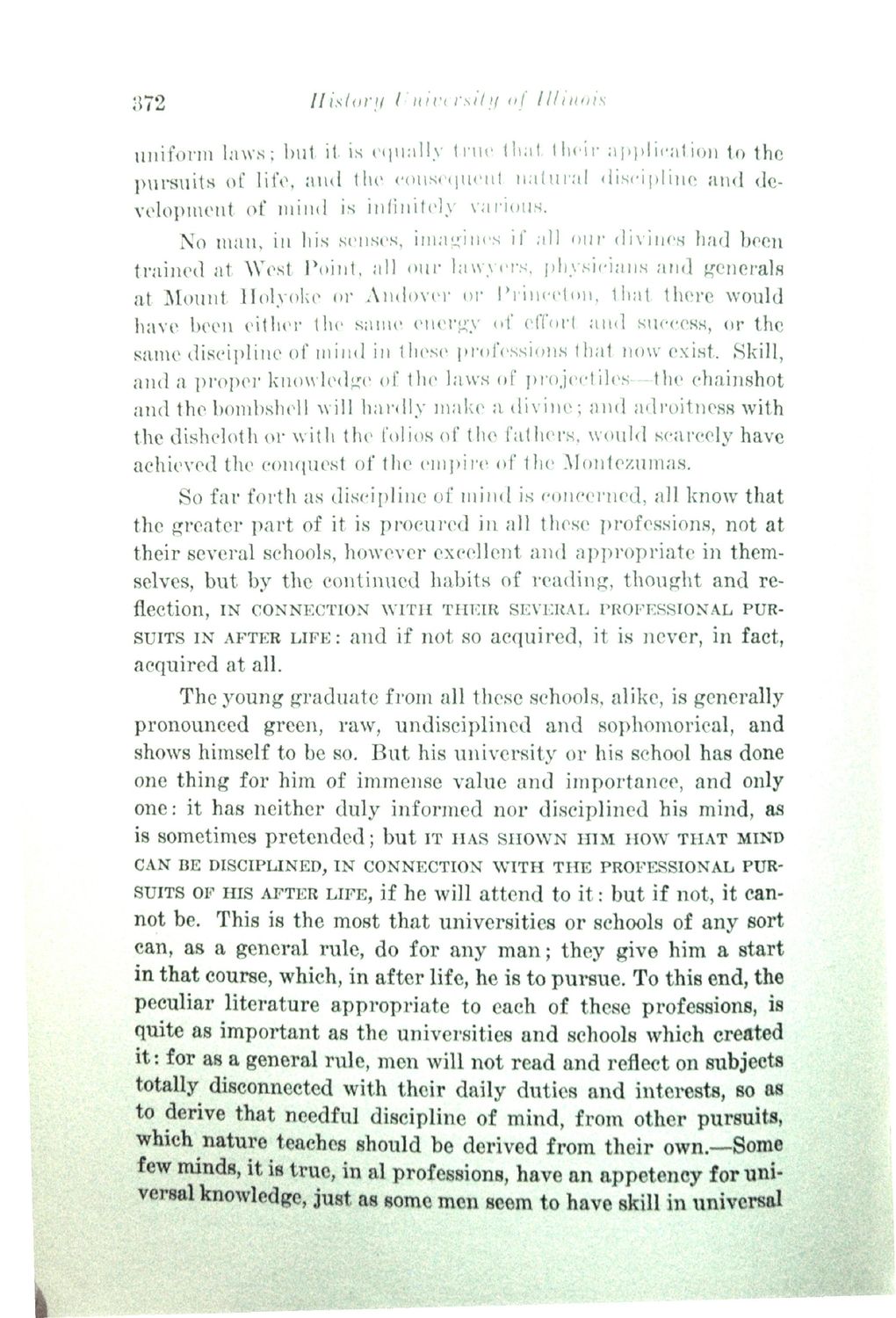| |
| |
Caption: Book - History of the University (Powell)
This is a reduced-resolution page image for fast online browsing.

EXTRACTED TEXT FROM PAGE:
872 History University of Illinois uniform laws; but it is equally true that their application to the pursuits of life, and the consequent natural discipline and development of mind is infinitely various. No man, in his senses, imagines if all our divines had been trained at West Point, all our lawyers, physicians and generals at Mount Holyoke or Andover or Princeton, that there would have been either the same energy of effort and success, or the same discipline of mind in these professions that now exist. Skill, and a proper knowledge of the laws of projectiles—the chainshot and the bombshell will hardly make a divine; and adroitness with the dishcloth or with the folios of the fathers, would scarcely have achieved the conquest of the empire of the Montezumas. So far forth as discipline of mind is concerned, all know that the greater part of it is procured in: all these professions, not at their several schools, however excellent and appropriate in themselves, but by the continued habits of reading, thought and reflection, IN CONNECTION WITH THEIR SEVERAL PROFESSIONAL PURSUITS IN AFTER LIFE : and if not so acquired, it is never, in fact, acquired at all. The young graduate from all these schools, alike, is generally pronounced green, raw, undisciplined and sophomorical, and shows himself to be so. But his university or his school has done one thing for him of immense value and importance, and only one: it has neither duly informed nor disciplined his mind, as is sometimes pretended; but IT HAS SHOWN HIM HOW THAT MIND CAN BE DISCIPLINED, IN CONNECTION WITH THE PROFESSIONAL PURSUITS OF HIS AFTER LIFE, if he will attend to it: but if not, it cannot be. This is the most that universities or schools of any sort can, as a general rule, do for any man; they give him a start in that course, which, in after life, he is to pursue. To this end, the peculiar literature appropriate to each of these professions, is quite as important as the universities and schools which created it: for as a general rule, men will not read and reflect on subjects totally disconnected with their daily duties and interests, so as to derive that needful discipline of mind, from other pursuits, which nature teaches should be derived from their own.—Some few minds, it is true, in al professions, have an appetency for universal knowledge, just as some men seem to have skill in universal
| |